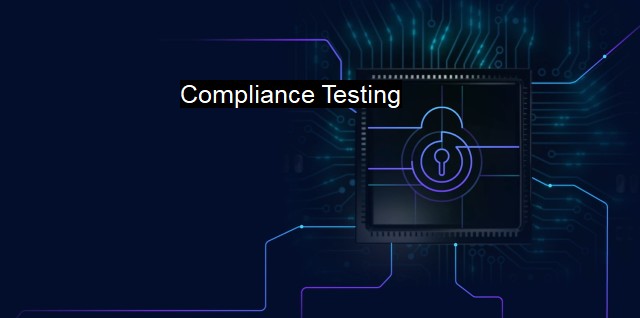What is Compliance Testing?
Cybersecurity Compliance Testing: Understanding the Standards and Certification Requirements for Antivirus and Information Systems
Compliance testing, often also referred to as Conformance Testing, is a crucial practice within the realm of cybersecurity and antivirus. It essentially involves testing of hardware, software or a full IT system to ensure that it meets specific prescribed standards of safety as per governmental, financial or industrial regulations. Recognized globally, many standards like ISO, IEEE etc., set forth certain criteria aiming at providing specific guidelines that the IT infrastructure should comply with for achieving optimal security and minimal risk.Compliance testing ensures that the protective systems in place follow the necessary protocols and are up-to-date with the latest developments in protection technology. This process not only involves testing firewalls and antivirus software but also incorporates a comprehensive assessment of all sorts of potential vulnerabilities, both on a system and organizational level.
The underpinning notion of compliance testing is to maintain and uphold rigorous standards of information security. As cyber-threats continue to evolve, often outpacing current antivirus and cyber protection methods, regular and effective compliance testing has become a necessity, rather than just a norm within the Information Technology sector.
Compliance testing involves intricate methods and rigorous procedures, centered on identifying system vulnerabilities. It entails system scanning, which analyzes the IT architecture extensively for possible weak spots, where malicious activities could potentially take root. Following the identification of such vulnerabilities, security patches are then applied to fortify the system.
Compliance testing also incorporates testing of applications and protocols within the organizational procedures, going beyond just the technological aspects. Considering the increase in the number and complexity of cyberattacks, companies need to establish robust protocols for handling and disseminating sensitive information, some of which might be user-related data. Compliance testing aids in reviewing the legitimacy and security robustness of such procedures, thereby ensuring that companies abide by regulations.
Conducting regular compliance tests ensures an alignment with the latest cybersecurity advances, while also meeting updated informational regulations. The systematic examination carried out during these tests empowers organizations to be sinewy against cyber attacks and virus infiltrations. More than a simple verification process, compliance testing is an outline of the effort that needs to be undertaken to prevent potential cybercrimes and acts of data theft.
Not only does compliance testing provide an assessment of the current safety status and vulnerability to cyber threats, but it also proposes remedies and preventive measures to curtail any risks at inception. Failure to comply with these standards not only increases the risk of a successful cybersecurity attack but in many industries, non-compliance might also invoke heavy penalties, tainted reputation, loss of credibility and might even question the survival of the business in extreme cases.
So, while constantly improving antivirus programs and firewalls are key to combating cybersecurity threats, it is equally important to carry out certified compliance tests to ensure that those improvements and protocols are holding firm against the onslaught of evolving cyber threats.
Compliance testing plays an indispensable role in the domain of cybersecurity. It builds a strong line of defense against the constantly burgeoning and increasingly complex world of cyber threats. By enforcing industry-wide regulatory protocols and ensuring those protocols are being stringently adhered to, compliance tests make a crucial contribution to shoring up the integrity of informational and IT assets. Therefore, investing time and resources in compliance testing should be a critical aspect of any organization's cybersecurity strategy.

Compliance Testing FAQs
What is compliance testing in cybersecurity?
Compliance testing in cybersecurity is the process of assessing whether an organization is adhering to relevant security regulations, standards, and policies. It helps organizations to identify potential security loopholes and ensure that they are following best practices to keep their systems secure.What are the benefits of compliance testing?
Compliance testing helps organizations to identify potential security risks and vulnerabilities that can put their systems and data at risk. It also helps organizations to ensure that they are complying with relevant security regulations and standards. By conducting regular compliance testing, organizations can improve their overall security posture and reduce the risk of cyberattacks.What are some examples of compliance testing for antivirus software?
Some examples of compliance testing for antivirus software include testing whether the software is able to detect and block known malware, testing whether the software is able to identify and remove malware from infected systems, and testing whether the software is able to update its virus definitions regularly.How often should compliance testing be conducted?
The frequency of compliance testing depends on the size of the organization, the complexity of its IT infrastructure, and the industry it operates in. Generally, compliance testing should be conducted at least once a year, or whenever there are major changes to the IT infrastructure, such as upgrades or new system implementations. However, organizations in highly regulated industries may need to conduct compliance testing more frequently.| | A | | | B | | | C | | | D | | | E | | | F | | | G | | | H | | | I | | | J | | | K | | | L | | | M | |
| | N | | | O | | | P | | | Q | | | R | | | S | | | T | | | U | | | V | | | W | | | X | | | Y | | | Z | |
| | 1 | | | 2 | | | 3 | | | 4 | | | 7 | | | 8 | | |||||||